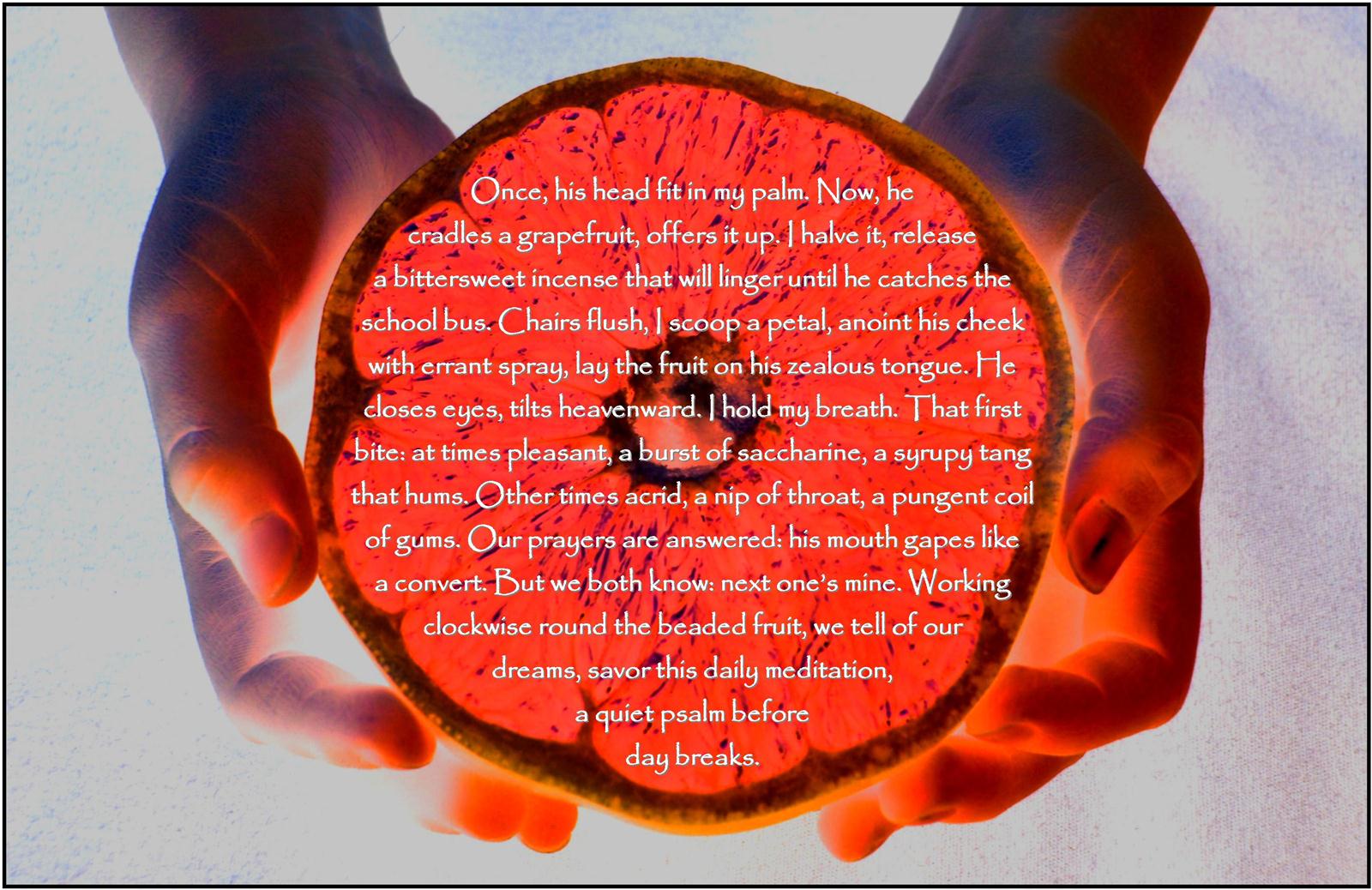For My Mother on her 60th Birthday
1.
I am putting together a parcel to send to my mother,
a bilingual volume of poetry, poems translated from the Arabic.
I read the poems in English, pausing
to lift words in Arabic and copy them in my notebook.
My innocent wide-eyed script. I don’t make a dash
to represent a pair of eyes,
or forgo luxurious curves, like someone fluent might.
Earnest child, setting out each word to sea,
releasing the palms with the blessing of heat, to take flight.
I cannot chart my mother’s spine, whether the book
is a paperweight, pretend-chamber of colored sand
or will she ingest the Arabic like liquid,
and veer to the translation, only to hear a small hum inside her:
Sky, brain, heart.
My ink traces your silhouette.
Here is an unknowable space, this margin between mine and yours.
In the spine, I cast a river over despair, a path in which all eyes must pass.
Verdant.
2.
This is just an entrance.
The Butoh master offers, “I speak baby English. Enjoy.”
We move while words are slowly spoken.
Previous generations are summoned.
The accent of my parents used to make me cringe
but this Japanese man has rinsed English into something bald, phosphorescent.
Mother, let’s find this flower through your body.
Flower never sinking, the Butoh master
recites over and over,
as we circle around the room, invisible
center.
I am trying to lift it
to become the girl who cannot see
but dances to the music.
A line has been whispered from
the center of my head
to the ceiling.
Now the body crumpling, seething.
3.
I reach long for the tender symphony. “And in the evening light they started to dance.”
At your son’s wedding, your body leapt up, wooden.
No buoyant whoosh inside, like a loosening, after many prostrations.
So here:
Now that the museum guards have gone home, slip inside
this hypnotic light show.
The sea roars at your feet.
The page is soaked with glittering sea dragons murmuring
private.
Dance on into the night.
4.
Mother, think about the legendary songstress,
vocal cords so
strong she had to stand
several feet away from the microphone.
Feet, arms, belly, yield to reddened.
Most of all, we long for touch. Who has congregated in this room?
I am listening for the wider stance.
Take, for example, gesture. Your word for it much more sensual,
a true beginning. A long sigh and whisper together.
Tumble,
A word learned by the body.
Samar Abulhassan earned an MFA in Creative Writing from Colorado State University in 2001. She teaches for Writers in the Schools, a program of Seattle Arts and Lectures, and the Richard Hugo House. She has published three chapbooks, and lives in Seattle.

